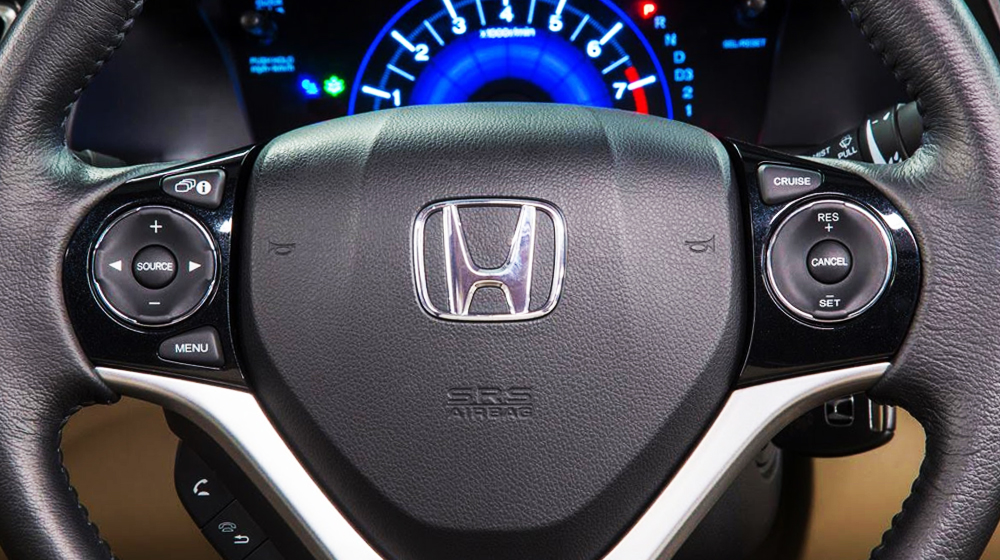Nissan's CEO is encouraging persistence with his erratic battle to break the automaker's dependence on impetuses in the U.S., however cautions that sliding deals are the inescapable transient expense.
Hiroto Saikawa said another U.S. supervisory group has started to loosen up what he considered long periods of awful practices that organized volume over gainfulness.
"In the U.S., we had an old propensity for pushing deals and overstretch," Saikawa said here a week ago as Nissan introduced its quarterly profit. The organization posted a 25 percent increase in quarterly working benefit.
"We are attempting to upgrade by and large brand esteem. That is a major bit of homework."
Saikawa: More agony before increase
Saikawa said he is sure his new U.S. group can do it, with time. Be that as it may, first there will be more agony.
Nissan cut its financial year U.S. deals standpoint a week ago to mirror the test. It currently anticipates its U.S. deals to fall 8.6 percent to 1.46 million vehicles in the monetary year to March 31.
"Shockingly, an impermanent decrease in volume is unavoidable," Saikawa said. "It will require investment to convey results. The best administration ought to be sufficiently persistent to hang tight for this."
Driving the turnaround is Jose Valls, named bad habit executive of Nissan North America in December and taking the best deals work recently held by Dan Mohnke for 14 months. Mohnke now drives a push to plan Nissan for new associated vehicle advances.
"I'm tallying a great deal on Mr. Valls," Saikawa said of the man who has been accountable for Nissan's Latin American business. Valls remains administrator of Nissan Latin America.
"Before, he has completed an extremely great job of conveying results," Saikawa said. "He exceeds expectations in selling dependent on esteem. That is the reason we delegated Mr. Valls."
The new U.S. deals boss has a difficult request.
Since a year ago, when Saikawa started turning around the U.S. technique of his antecedent Carlos Ghosn, presently under arraignment in Japan for supposed budgetary shamefulnesses, Nissan's U.S. execution has been in decrease.
Nissan Group's U.S. retail deals fell 6.3 percent to 1.49 million vehicles a year ago in a general market that rose 0.6 percent. Nissan Group's U.S. volume further tumbled 18 percent in January.
That is a major issue for a Japanese automaker that gets 40 percent of its benefits from the U.S.
Nissan's worldwide working net revenue wilted to 4.3 percent in the initial nine months of the monetary year that closes March 31, from 6.1 percent a year sooner. Nissan expects full financial year working overall revenue to slide to 3.9 percent, from 4.8 percent the earlier year.
Difficult rotate
"The edge of Nissan isn't something we are pleased with," Saikawa surrendered. "The North American task of Nissan is the real reason for that."
Valls reports to Nissan North America Chairman Denis Le Vot. Saikawa picked the two to fix the volume race increase by past North America Chairman Jose Munoz at Ghosn's bearing. Munoz, who likewise was boss execution officer, surrendered a month ago.
Le Vot: Undoing the volume race
Saikawa is endeavoring to turn the organization far from benefit depleting armada deals and motivators in the U.S. to shore up brand esteem and edges.
Saikawa said Nissan is set up to forfeit some volume to reinforce edges. Early a year ago, the organization started pulling back armada conveyances, winnowing enlarged inventories and facilitating weight on merchant deals impetus programs, even as the U.S. light-vehicle advertise mellows.
Pundits state he moved too rapidly and too drastically to the detriment of income stream.
In the initial nine months of its current monetary year, endeavors to reel in U.S. motivating forces included ¥56.7 billion ($514.3 million) to the organization's working benefit. In any case, that couldn't balance the hit to volume. Sliding deals hacked off $628.6 million.
Saikawa said things will intensify before they improve. He anticipated breaking down U.S. economic situations will additionally convolute the turnaround.
"The U.S. advertise has been growing for quite a while," Saikawa said. "But since of changes in nature, it topped out. For the following monetary year, we see it descending marginally and rivalry increasing," he said.
Officials have said Nissan's drive to improve benefit is taking additional time and cash than anticipated. To shore up benefits in North America, Nissan a month ago said it would cut 700 laborers from its Canton, Miss., get together plant in the midst of abating offers of trucks and business vans.
Blended outcomes
"We would prefer not to push deals. We need deals dependent on esteem," Saikawa said.
"Killing overstretch and giving the volume a chance to descend, that is the thing that we have done. Yet, we have to upgrade our business capacity. That is the place we are battling and requiring some serious energy," he said. "The U.S. group has not had enough time to build up this sort of ability yet."
Nissan's advancement toward lower motivating forces and inventories has been blended.
Valls: Selling dependent on esteem
At the Nissan brand's make meeting a month ago amid the National Automobile Dealers Association Show, Valls guaranteed steady and reasonable destinations to the dubious stair-step motivating force program, while vowing to diminish enlarged inventories of more established models on merchant parts.
He additionally said Nissan would give merchants longer-term, 90-day deals targets, so retailers have more opportunity to all the more likely arrangement their business methodologies.
Impetus spending at Nissan brand and Infiniti expanded 1.5 percent to a normal of $4,389 per vehicle in October-December, as indicated by Autodata Corp.
That avoided the business pattern, which encountered a 3.4 percent decline in per-vehicle spending, and Nissan's expenses were as yet higher than the business normal of $3,714 per unit.
On the other hand, U.S. impetuses at Japanese adversaries Toyota, Honda, Mazda, Subaru and even Mitsubishi were beneath Nissan's in October-December. Every one of those creators, aside from Honda, additionally cut motivation spending in the quarter.
In the meantime, Nissan North America has been attempting to lessen U.S. inventories.
Be that as it may, Nissan Group vehicle stocks rose to a 79-day supply on Feb. 1, from 51 days on Jan. 1 and 65 on Feb. 1, 2018, as per the Automotive News Data Center. On Feb. 1, Nissan brand and Infiniti had 317,200 vehicles in stock, up from 290,200 on Jan. 1.
Nissan's supply was lower than the business normal of 88 days on Feb. 1, and, eminently, the organization's inventories were lower than American Honda's, at 90 days.
They were lower than Mitsubishi's, at 120, while as yet being in the scope of Mazda's 75-day supply and Toyota's 71-day accumulation.



